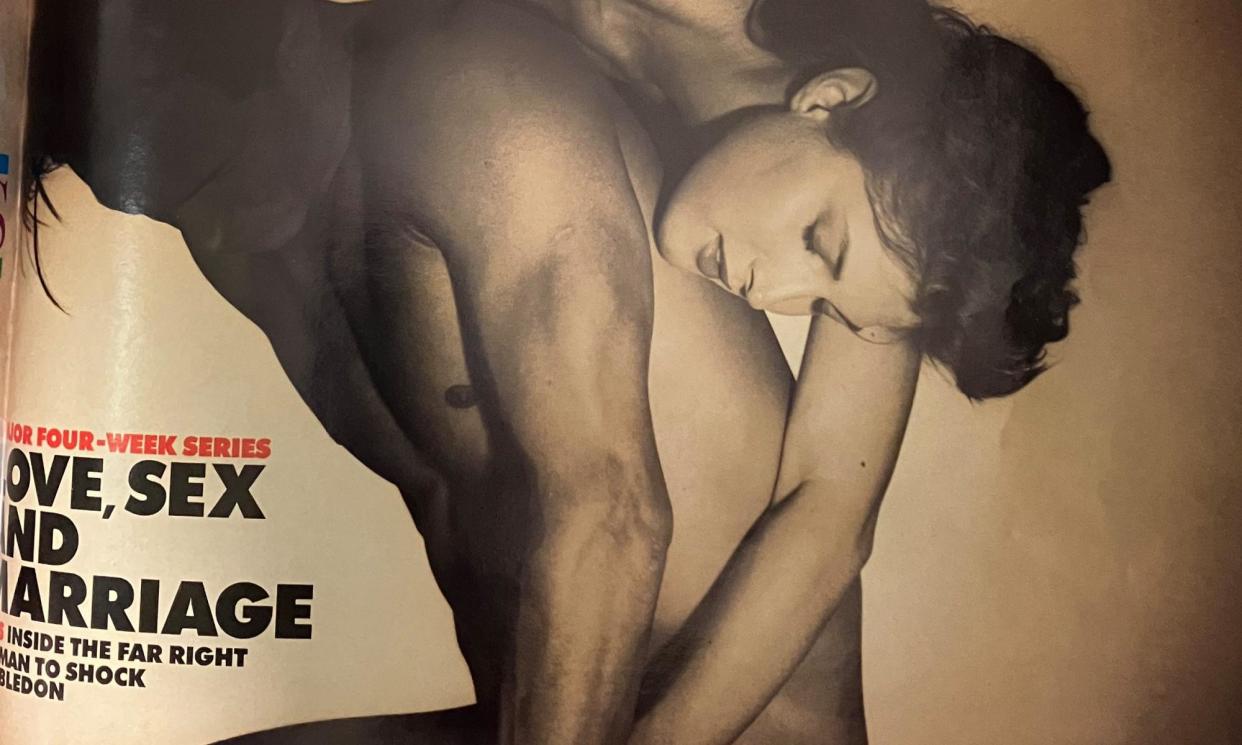A look back at sex and relationships in 1991

Nineties love was looking for a label when the Observer took a look at relationship attitudes in 1991. No-Fun, Nasty or Naughty? Caught between increasing permissiveness and the pervasive fear of Aids, they settled on the ‘no-label Nineties’.
Sex and relationships had been stripped of their moral certainties and ‘Today’s role models… demonstrate an ever-increasing variety of sexual, emotional and marital roles.’ They included celebrity livers-in-sin Paula Yates and Bob Geldof and Mick Jagger and Jerry Hall, unmarried parents Neneh Cherry and Joanna Lumley, singletons Germaine Greer and Warren Beatty and the out-and-proud likes of Ian McKellen and Derek Jarman. The ‘celebrated celibates’ section quoted Alan Bennett’s famous reply when questioned on his preferences: ‘It’s like asking a man crawling across the Sahara if he would prefer Perrier or Badoit.’
What did the figures say about civilians? Marriages were lasting a similar length of time as in 1888 (28.8 years then versus 30.5 in 1991), but the reason they ended was predictably different: 0.05% of divorces in the Victorian era, compared to 37%. Survey data consistently suggested men were having more sex than women – an average of 11 partners for men and 2.9 for women – to a degree that seemed mathematically improbable and had generated heated debate on the logistics. There were age differences, too: a 1989 report found younger men had sex earlier and had more partners than other groups: ‘The over-40s had either better morals or worse memories.’
Romance was alive and well, at least for the 50% of Labour voters who thought there was just one Mr or Mrs Right for them (only 38% of Lib Dems and 44% of Tories agreed). The ‘most romantic group of all’, though, were pensioners and the bereaved, many of whom believed they had only been in love once.
But was anyone telling the truth? ‘A certain self-deception’, dishonesty, bravado and embarrassment all probably skewed the figures somewhat. Besides, ‘A magazine questionnaire is likely to elicit replies mainly from the bored, boastful and batty.’


